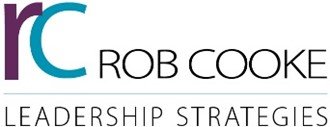
The Board's Role in Strategy Development
We are told that strategic planning is one of a Board’s key roles. There is, however, a great deal of confusion as to what this role should entail. There is often a great deal of confusion among boards as to what they should, or shouldn’t do when it comes to participating in strategy development.
The source of the confusion may start with a misreading of the board’s role in general. The board is appointed by the shareholders (owners, members) of an organization to look after the best interests of the organization – not the shareholders. The Board’s role is to look after the long-term survival, growth and prosperity of the organization. In this corporate-governance role, the board is judge and jury of the CEO, his or her management team, and any strategic plan that this group produces. As a consequence, the board should keep at arm’s length any development of the organization’s strategic plan. You can’t be judge, jury and the accused all in one! But this does not mean that the Board doesn’t have an important role to play in the strategic planning process.
Experts in Board Governance agree that the job of the CEO and the management team is to identify strategic options, land on recommendations of what the organization should be doing and why; identify the risks associated with that course of action and then execute the strategy which is recognized as the most difficult part.
Directors should not get directly involved in the development of the strategic plan but should test and probe the organization’s recommendations related to strategic direction and use their experiences and skills to help management refine the recommendations. A Boards over-involvement in strategy development undermines management accountability.
While the Board is not responsible for developing the strategy, the best results come by involving the board early in the process. The Board can provide valuable input before the strategic planning process begins and act as a sounding board as part of a review process. Hence, the Board can play an important role during several steps of the strategic planning process:
Before the process starts
The Board should provide guidance on specific opportunities and issues to be considered during the strategic planning process and provide clarity of the strategic questions that should be answered. Board members should also clarify their assessment criteria (planning parameters) related to any proposed strategic options.
Strategy review and approval
Management should come to the board with a proposed plan for what they want to do. Together Board members and management actively collaborate on exploring and debating the plan. The Board will often have a broader vision, enabling the management team to consider more choices before selecting the optimal course and direction.
After strategy development
The Board should review the strategy to make sure that it is internally consistent and that there are concrete implementation plans for key strategic objectives. The Board ultimately approves the strategic direction as defined in the plan.
During the year
The Board monitors progress to ensure the strategy stays on track or changes when business conditions necessitate change.
Sample Key Strategic Questions to be Answered During Strategy Development
What are the key industry trends that will directly impact the business?
What’s opportunities exist here and in other parts of the world that could be evaluated?
How are direct competitors performing in the marketplace? How do we benchmark against them?
What are the recommended revenue, profit and growth targets?
What core strategic direction changes are being considered?
What are the key human resources, culture, financial and technical issues and questions?
What are we not going to do?
What are the key threats and risks to achievement of the proposed strategic direction?
About the author: Rob Cooke is a leadership advisor, strategist and coach. He utilizes his extensive background in business and organizational development to help leaders achieve greatness. Rob works with Executive Teams and Boards of private, public and not-for-profit organizations to enhance their effectiveness and performance.
June 12, 2017 | Leadership Team and Board Development
